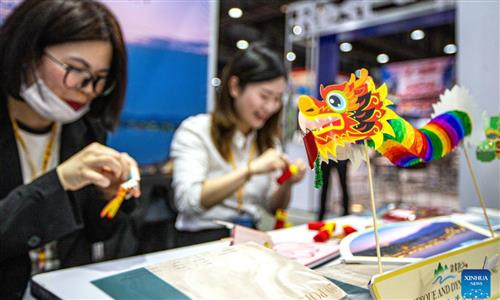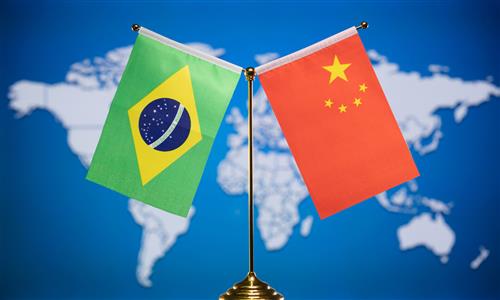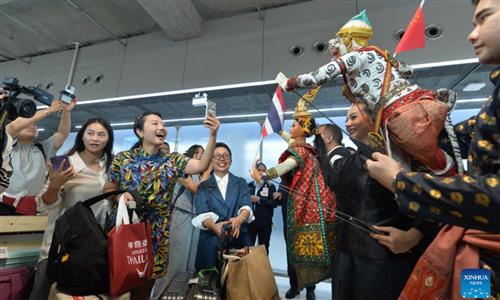Political advisor suggests China to expand the scope of visa-free, visa-on-arrival countries in 2024

Foreign tourists enjoy themselves at Tiantan in Beijing. Photo: VCG
A political advisor suggested China expand the scope of visa-free and visa-on-arrival countries, optimize visa processing and offer convenient policies for foreign arrivals, in order to strengthen international exchanges and further stimulate the country's opening-up.
The suggestion was made by Zheng Chunyang, a member of the Chinese People's Political Consultative Conference (CPPCC) National Committee, who stated that in face of tremulous international situation, facilitating international personnel exchanges will accelerate the attraction of global resources and enable more participation in international economic cooperation, leading to the formation of new competitive advantages for China.
Through his research, Zheng found out that foreign arrivals to China still currently face obstacles such as complicated and lengthy visa application procedures as well as lagging international facility services. For example, many Chinese cities don't have multilingual public signs; and number of international medical service institutes is insufficient.
Zheng also said that although China has established cooperation with multiple countries, international exchange activities are mostly short-term and temporary projects. In addition, the quantity and quality of international talent exchange programs need to be improved.
To address the challenges hindering international exchanges between China and other countries, Zheng revealed to the Global Times his intention to propose measures during the upcoming two sessions. He plans to advocate for the optimization and simplification of the visa application process in order to facilitate smoother and more efficient travel between nations.
He also advised to popularize the use of self-service clearance devices, mobile apps and other technological means, achieve advance declaration and fast verification when crossing the border. He also believes that setting up multilingual signs in cities and encouraging hospitals to provide international outpatient services would be of benefit.
Zheng said that in 2024, China should expand its scope of visa-free and visa-on-arrival countries, and extend the Hainan experience to more cities nationwide, in order to create a higher level of opening-up.
In February, China eased its visa-free policy for entering the country's southern island province of Hainan. Starting February 9, visitors from countries such as Russia, France, the US, Brazil, Japan and the United Arab Emirates are allowed to enter Hainan on a visa-free basis for purposes including business, holidays, visiting a relative, medical treatment, attending an exhibition or sports, China's National Immigration Administration said in a statement.
Eligible visitors can stay in Hainan Province for up to 30 days.
From December 1, 2023 to November 30, 2024, holders of ordinary passports from France, Germany, Italy, the Netherlands, Spain and Malaysia may enter China for no more than 15 days in a move to better facilitate cross-border people-to-people exchanges between China and foreign countries, China announced at the end of last year.
The Chinese government is also making significant efforts to streamline the arrival process for foreigners entering the country.
On Friday, Zhang Qingsong, deputy governor of the People's Bank of China, said the central bank will guide payment platforms such as Alipay and Tenpay to raise the single transaction limit for overseas travelers using mobile payments from $1,000 to $5,000, and the annual cumulative transaction cap will be raised from $10,000 to $50,000.
Efforts will also be made to simplify identity verification and provide easier access for foreign visitors to manage various processes, such as binding a bank card for digital payment, according to Zhang.
Another political advisor Wang Yu, chairman of Spring Airlines, proposed that by hosting various global events and exhibitions, China can effectively expand its brand and attract visitors from around the world.
This will also help attract foreign investment and encourage more expatriates to settle in China. These individuals can then promote China to their friends and family in their home countries, further attracting visitors to China. This group of people serves not only as an important source of inbound tourism, but also as a credible voice to counter the demonization of China by some foreign media in their respective countries.




